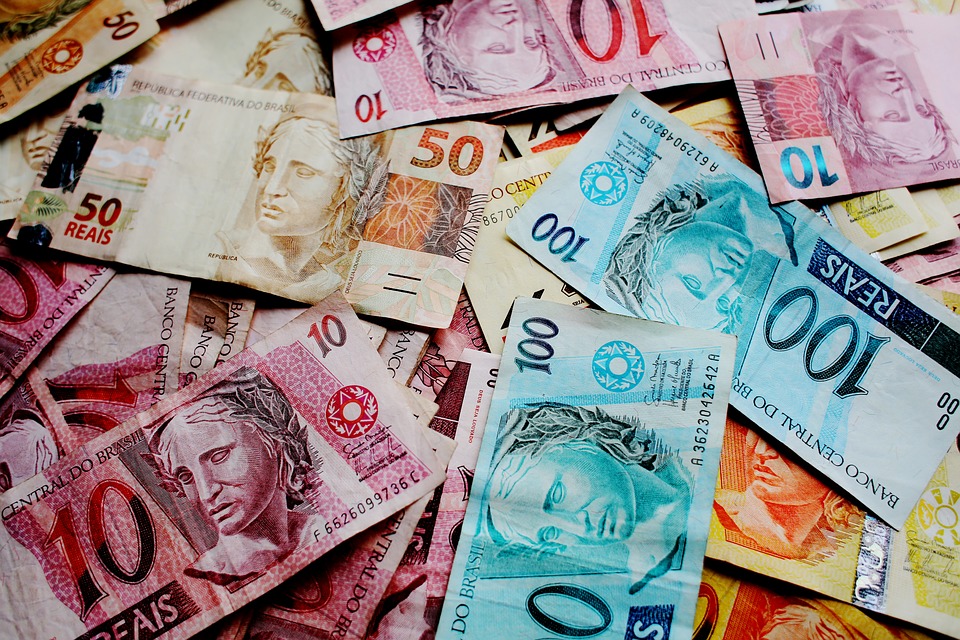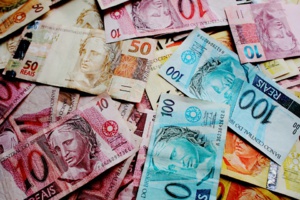Last year, the Bank had successfully completed the financial marathon: its net profit increased by half compared to 2014, reaching 111 million reais ($ 30 million). The credit portfolio of Banco Original rose by two-thirds (up to 4.25 billion reais), despite the fact that Brazil's economy declined by 3.8%.
Banco Original expanded lending, yet this is more the exception than the rule. Demand for loans fell sharply, as the most severe recession since the 1930s. deprived Brazilian business of consumers and workers – of income or, even worse, of work. Now, financial institutions are considering each loan very carefully since the number of overdue loans has greatly increased.
At the same time, Brazilian banks are generally successful in overcoming the current crisis. Of the 180 credit institutions, monitored by the central bank, only 25 (mostly small) recorded losses in 2015.
Last year, the banking sector’s profit (except for state development banks) reached 85 billion reais, compared with 66 billion reais in 2014. Return on equity was 15% on average, down from over 20% in the mid-2000s, when Brazil's economy had developed rapidly thanks to the commodities boom.
Nevertheless, performance in 2015 showed up much better than in the previous two years. It all looks a bit strange and not consistent with the financial aerodynamics.
This can be partly explained by that the lower volume of lending was offset by a higher difference between the interest rates on active and passive operations (net interest margin). The latter soared after the central bank raised its key interest rate to 7% since 2013, bringing it to 14.25% (in the hope of stopping inflation, which is currently at 10%).
The average cost of credit in Brazil was 32% in October year. While the rich world's banks have complained to the negative rate, their Brazilian colleagues had a real yield of around 5% on government bonds, which reached a quarter of their assets - says Jose Perez-Gorozpe from Standard & Poor's.
Beyond simple good luck, Brazilian banks are extremely rational. The sector has made the right conclusions from the crisis of 1995-1998. Then, all "bad" debts of bankrupt companies (mostly state) were transferred to a state-owned bank, and good loans were sold to stronger private competitors.
A newly-appeared "purified" system came out more concentrated. Today, the five largest banks account for three quarters of all loans issued. The sector has also become more conservative, partly due to the fact that banks are required to have a considerable reserve fund to compensate for potential losses.
When the global financial crisis broke out, only one major bank (Unibanco) found itself in an extremely difficult position. Subsequently, Unibanco merged with its rival Itaú, resulting in establishing the largest bank by market capitalization in Latin America.
Brazilian banks also pay special attention to less volatile paid services, such as insurance and credit cards. Large funds are invested in high-tech (they spent there 22 billion reais only in 2014). As a result, more than half of banking transactions are conducted online today, which allows reducing the number of bank branches expensive to maintain.
As a result, prudent and skillful management have allowed Brazil to avoid a banking crisis (such as in Spain and Greece). Less than a dozen of small financial institutions were closed, mostly due to frauds. Approximately 70% of loans are financed by contributions. The probability that they run out is small: high inflation makes it unprofitable for the Brazilians to keep their money under the mattress.
However, against the background of a budget deficit of GDP’s 10.7%, the economy slowing down by about 4% and escalating political crisis, the profit of the banking sector this year is likely to fall significantly. Furthermore, according to J.P. Morgan’s estimate the number of overdue loans will increase dramatically in 2016. Even skillfully controlled banks in Brazil cannot indefinitely ignore the finance laws.
source: economist.com
Banco Original expanded lending, yet this is more the exception than the rule. Demand for loans fell sharply, as the most severe recession since the 1930s. deprived Brazilian business of consumers and workers – of income or, even worse, of work. Now, financial institutions are considering each loan very carefully since the number of overdue loans has greatly increased.
At the same time, Brazilian banks are generally successful in overcoming the current crisis. Of the 180 credit institutions, monitored by the central bank, only 25 (mostly small) recorded losses in 2015.
Last year, the banking sector’s profit (except for state development banks) reached 85 billion reais, compared with 66 billion reais in 2014. Return on equity was 15% on average, down from over 20% in the mid-2000s, when Brazil's economy had developed rapidly thanks to the commodities boom.
Nevertheless, performance in 2015 showed up much better than in the previous two years. It all looks a bit strange and not consistent with the financial aerodynamics.
This can be partly explained by that the lower volume of lending was offset by a higher difference between the interest rates on active and passive operations (net interest margin). The latter soared after the central bank raised its key interest rate to 7% since 2013, bringing it to 14.25% (in the hope of stopping inflation, which is currently at 10%).
The average cost of credit in Brazil was 32% in October year. While the rich world's banks have complained to the negative rate, their Brazilian colleagues had a real yield of around 5% on government bonds, which reached a quarter of their assets - says Jose Perez-Gorozpe from Standard & Poor's.
Beyond simple good luck, Brazilian banks are extremely rational. The sector has made the right conclusions from the crisis of 1995-1998. Then, all "bad" debts of bankrupt companies (mostly state) were transferred to a state-owned bank, and good loans were sold to stronger private competitors.
A newly-appeared "purified" system came out more concentrated. Today, the five largest banks account for three quarters of all loans issued. The sector has also become more conservative, partly due to the fact that banks are required to have a considerable reserve fund to compensate for potential losses.
When the global financial crisis broke out, only one major bank (Unibanco) found itself in an extremely difficult position. Subsequently, Unibanco merged with its rival Itaú, resulting in establishing the largest bank by market capitalization in Latin America.
Brazilian banks also pay special attention to less volatile paid services, such as insurance and credit cards. Large funds are invested in high-tech (they spent there 22 billion reais only in 2014). As a result, more than half of banking transactions are conducted online today, which allows reducing the number of bank branches expensive to maintain.
As a result, prudent and skillful management have allowed Brazil to avoid a banking crisis (such as in Spain and Greece). Less than a dozen of small financial institutions were closed, mostly due to frauds. Approximately 70% of loans are financed by contributions. The probability that they run out is small: high inflation makes it unprofitable for the Brazilians to keep their money under the mattress.
However, against the background of a budget deficit of GDP’s 10.7%, the economy slowing down by about 4% and escalating political crisis, the profit of the banking sector this year is likely to fall significantly. Furthermore, according to J.P. Morgan’s estimate the number of overdue loans will increase dramatically in 2016. Even skillfully controlled banks in Brazil cannot indefinitely ignore the finance laws.
source: economist.com






